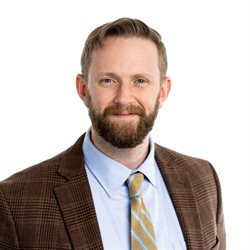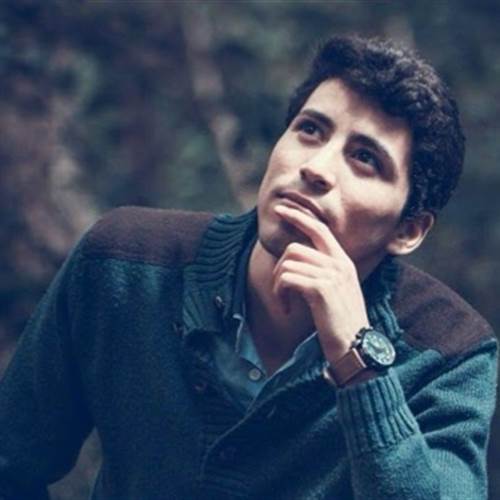
Going Deeper: Vocal Technique & The Soul
Posted Monday, July 12th 2021 by David McCall
As one of my first voice teachers used to say, "The study of voice is the study of one's self..."
No one can study breathing, registration, or resonance without unfolding greater truths about one's own feelings, beliefs, and dreams; however, it doesn't happen all at once with trumpets blaring. It's a mindful process, and for some singers it's an act of revolt against some long-held beliefs about themselves and their limits.
I've have had the honor of witnessing the moment singers first begin to crack the veneer of what they think singing has to be, and they start to see the potential of what it can be.
One particular client has experienced the transformation recently. She is an incredible composer and singer who has been making music regularly her entire life. We'll call her 'Cindy.'
Cindy first sought voice lessons after encountering another singer who seemingly had all the skills Cindy wanted, but Cindy didn't believe that she could attain those skills. She started voice lessons with the hope of just getting a little better. She didn't expect to ever have total control over her voice, rather she was willing to settle for a form of second place.
In our sessions it was common to hear Cindy compare her voice to other singers: "I could never do that;" or "I'm not that kind of singer;" or "my voice can't [fill in the blank.]"
I'm sure you've had those thoughts from time to time as well, and I can't argue with you. When you measure yourself by another person's rubric all you can hope to attain is a second-rate version of what someone else does brilliantly.
Comparison is waste of energy. Every individual is unique with unique talents. Find your passion and live your best life. ― Lailah Gifty Akita
My teaching goal was to nudge her perspective from one of comparison to one of self-focus. After each exercise I would ask, "How did that feel?"
Initially, Cindy had no bearings whatsoever when it came to how an exercise felt. She would look at me puzzled and say, "I don't know. Fine...?" Then I would follow with "well, did it?" to keep the conversation afloat. I had to be, well, insistent.
Paying attention to how the exercise feels keeps you, the singer, engaged in the action. When you take a passive role in singing, you welcome all sorts of bad habits. The eyes glaze, the jaw locks, and breathing all but stops. I compare it to a singer leaving the stage to sit in the audience. The singer has left the creative position and started listening to (judging) the sound. Instead, keep your antennae out. Collect data without leaving the singing process:
Do you like the way you sound when you're singing this particular exercise or song?
What aspect of your voice are you enjoying in particular?
Which range feels the best?
Does it feel uncomfortable in any way?
Does it sound odd to you?
Bringing that level of consciousness to your singing changes everything. It puts you, the singer, in control. Suddenly you are actively conducting the experiments with your teacher and taking ownership of your growth using the tools that your teacher is offering you. Perhaps a more accurate name for the vocal studio is the vocal 'laboratory.'

One of the most powerful lessons in life is to recognize that no one can give you power, and many people don’t want you to have it. You have to find the courage to seize it, own it and hold on! ― Shannon L. Alder
For the first few months of Cindy's lessons, my questions would be met with short answers: "It felt fine" or "I didn't feel anything." Then something changed. Cindy began feeling! Ideas began connecting to other ideas, and the coordinations started coming faster than ever.
She began leading the conversations about her vocal development. That singer she had heard long ago who had propelled her on this journey was now a distant memory. Instead she was curious about seeking and finding her own limits and adventurous about trying new exercises and sounds.
Not only is her voice improving but her mindfulness as well. We can now recognize and remove limiting thought patterns more and more easily thanks to rehearsing the skill of staying in the moment.
Now when Cindy and I meet, she's brimming with ideas and aspirations for her own growth. She's become a remarkable singer because she's taken ownership of her own learning.
Best of all, she even likes how she sounds. Invariably I'll find an email in my inbox from her every week celebrating a success in the recording studio or inquiring about a sound a certain singer can make that she wants to attempt. The comparisons are gone, replaced with experimentation and pride in her ever growing abilities.
You can dance in the storm. Don't wait for the rain to be over before because it might take too long. You can can do it now. Wherever you are, right now, you can start, right now; this very moment. ― Israelmore Ayivor

David McCall
Senior Voice Teacher, Head of Vocal Development
David has become one of the leading instructors of Contemporary Voice in New York City, with clients ranging from Broadway singers (Billy Elliot, Matilda), Classical and sacred music singers, cantors in New York City Synagogues, to Professional Rock and Pop artists, some of which have toured and been signed to record contracts, appeared on shows like The Voice and American Idol, and performed at venues such as SXSW. Additionally, David has taught as a Master Teacher of Contemporary Voice for the NYSTA Comparative Vocal Pedagogy series.

Congrats, Hailey Mia: 5 Questions with The Voice's Youngest Finalist!
Hailey Mia has taken the country by storm with her soulful tone and incredible control - all at the age of 14! She's a part of the NYVC community and took the time out of her production schedule to answer our questions about The Voice, her experience, and her advice to other aspiring singers...

The "Sound" And The Voice
As actor/singers prepare for auditions, there tends to be a great deal of concern about the “sound” that’s required to accurately portray (or at least, land) the role that is being cast. Aside from the...

Finding the 'Why' with David McCall
Why do we do what we do? What is it about the profession that compels us to devote our lives to all the ups and downs that accompany this ever-changing rollercoaster ride?